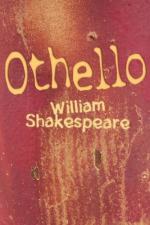|
This section contains 5,107 words (approx. 18 pages at 300 words per page) |

|
Lynne Magnusson, University of Waterloo, Ontario
Before Brabanzio complains to the Venetian senators of Othello's marriage, Iago warns Othello that 'the magnifico is much beloved, / And hath in his effect a voice potential / As double as the Duke's'. Brabanzio's words will exert power—the power to 'divorce you, / Or put upon you . . . restraint or grievance' (1.2. 12--5). Their power, however, will depend not upon Brabanzio's rhetorical skill but instead upon his social position—that is, both on his aristocratic status ('magnifico') and on the accumulated credit he has with his auditors ('much beloved'). How his speech is received will depend less on what he says than on the social site from which it is uttered. Othello rebuts Iago's position, but he does not dispute Iago's pre-supposition that linguistic competence counts for less than rank or otherwise attributed status in this matter of 'voice potential': 'My services which I have...
|
This section contains 5,107 words (approx. 18 pages at 300 words per page) |

|


